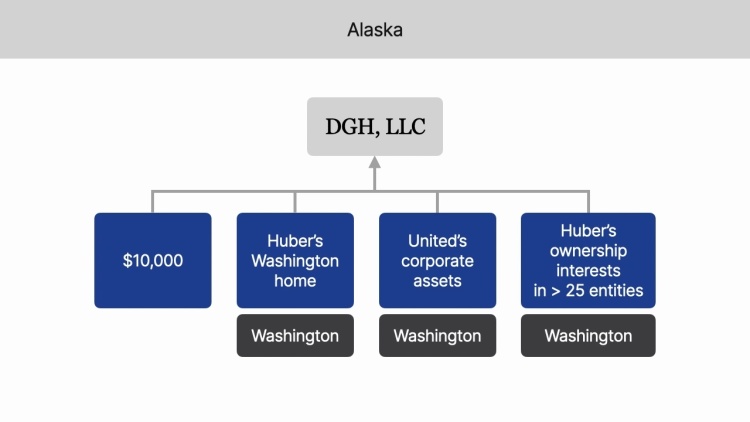In re Huber
United States Bankruptcy Court for the Western District of Washington
493 B.R. 798 (2013)
- Written by Liz Nakamura, JD
Facts
Donald Huber (defendant) was a real estate developer with interests in multiple companies and properties principally located in Washington State. Donald was also a guarantor for several large real estate projects in Washington. Starting in 2007, because of the real estate crisis, Donald was unable to secure funding for his projects, he was unable to cover his debts, and foreclosure actions against the projects Donald guaranteed were imminent. In August 2008, Donald contacted Harold Snow, an estate attorney, to set up the Donald Huber Family Trust (trust), an asset-protection trust intended to shield Donald’s assets from creditors. The trust was created in Alaska and stated it was to be governed under Alaska law. Alaska recognized self-settled asset-protection trusts, but Washington did not. The trust’s only connections to Alaska were a $10,000 certificate of deposit and Alaska USA Trust Company’s appointment as cotrustee. Donald transferred over 70 percent of his assets into the trust without consideration. Donald did not retain the right to direct trust distributions but received $14,500 per month for his personal expenses, and most of his requests for additional funds were granted. In 2011, Donald filed for Chapter 7 bankruptcy. Mark Waldron (plaintiff), the bankruptcy trustee, moved for summary judgment (1) voiding the transfers made into the trust as fraudulent and (2) invalidating the transfers into the self-settled trust under Washington law voiding transfers into self-settled trusts.
Rule of Law
Issue
Holding and Reasoning (Snyder, J.)
What to do next…
Here's why 907,000 law students have relied on our case briefs:
- Written by law professors and practitioners, not other law students. 47,100 briefs, keyed to 996 casebooks. Top-notch customer support.
- The right amount of information, includes the facts, issues, rule of law, holding and reasoning, and any concurrences and dissents.
- Access in your classes, works on your mobile and tablet. Massive library of related video lessons and high quality multiple-choice questions.
- Easy to use, uniform format for every case brief. Written in plain English, not in legalese. Our briefs summarize and simplify; they don’t just repeat the court’s language.





